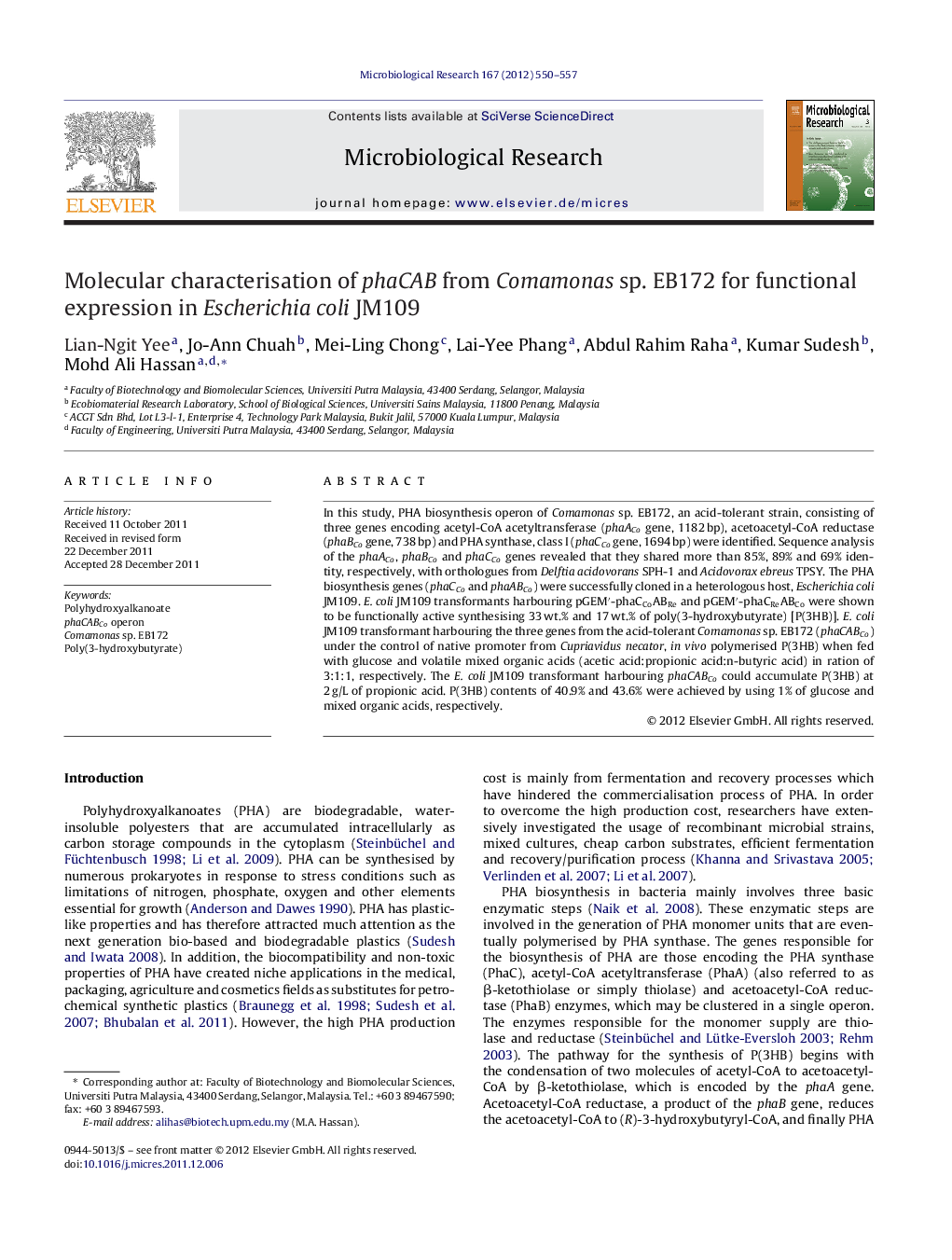| Article ID | Journal | Published Year | Pages | File Type |
|---|---|---|---|---|
| 2093039 | Microbiological Research | 2012 | 8 Pages |
In this study, PHA biosynthesis operon of Comamonas sp. EB172, an acid-tolerant strain, consisting of three genes encoding acetyl-CoA acetyltransferase (phaACo gene, 1182 bp), acetoacetyl-CoA reductase (phaBCo gene, 738 bp) and PHA synthase, class I (phaCCo gene, 1694 bp) were identified. Sequence analysis of the phaACo, phaBCo and phaCCo genes revealed that they shared more than 85%, 89% and 69% identity, respectively, with orthologues from Delftia acidovorans SPH-1 and Acidovorax ebreus TPSY. The PHA biosynthesis genes (phaCCo and phaABCo) were successfully cloned in a heterologous host, Escherichia coli JM109. E. coli JM109 transformants harbouring pGEM′-phaCCoABRe and pGEM′-phaCReABCo were shown to be functionally active synthesising 33 wt.% and 17 wt.% of poly(3-hydroxybutyrate) [P(3HB)]. E. coli JM109 transformant harbouring the three genes from the acid-tolerant Comamonas sp. EB172 (phaCABCo) under the control of native promoter from Cupriavidus necator, in vivo polymerised P(3HB) when fed with glucose and volatile mixed organic acids (acetic acid:propionic acid:n-butyric acid) in ration of 3:1:1, respectively. The E. coli JM109 transformant harbouring phaCABCo could accumulate P(3HB) at 2 g/L of propionic acid. P(3HB) contents of 40.9% and 43.6% were achieved by using 1% of glucose and mixed organic acids, respectively.
